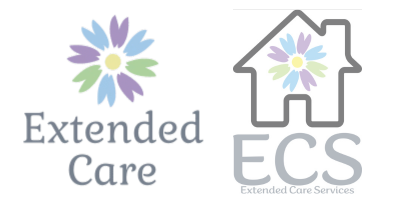Emergencies or natural disasters can strike suddenly and unexpectedly, making preparedness a critical aspect of any individual’s safety and well-being. For adults with disabilities in Adams County, Colorado, the potential challenges, concerns, and requirements during an emergency can add another layer of complexity when creating and implementing a comprehensive plan. Host Home Agencies, like Extended Care, play a critical role in ensuring that adults with disabilities and their families are well-prepared to face a range of emergency situations, reducing the risks and fostering resilience in times of crisis.
In this article, we will explore the essential elements of emergency preparedness for adults with disabilities in Adams County, examining the unique needs, challenges, and considerations that must be addressed when developing robust and comprehensive plans. We will delve into the vital role that Host Home Agencies play in facilitating emergency preparedness, providing guidance, support, and resources to help clients and their families feel confident and secure when faced with a variety of emergency scenarios.
1. Essential Elements of Emergency Preparedness for Adults with Disabilities in Adams County
Developing a comprehensive emergency preparedness plan for an adult with a disability in Adams County requires careful consideration of their unique needs, challenges, and preferences. Key elements of an effective plan include:
Personalized planning: Assess the specific requirements, vulnerabilities, and strengths of the individual, taking into account the nature of their disability, communication abilities, medical needs, and support systems.
Evacuation & sheltering: Identify accessible evacuation routes and potential emergency shelter options that accommodate the individual’s unique needs, ensuring they are equipped and prepared to leave their residence safely in the event of an emergency.
Emergency preparedness kit: Prepare a customized emergency kit that takes into account the person’s specific needs and requirements, including essential medications, assistive devices, and communication tools.
Communication plan: Establish a clear communication plan, identifying emergency contact numbers, backup communication methods, and support networks that the individual and their family can rely on during a crisis.
Education & training: Ensure that the individual, their family, and their support network are knowledgeable about emergency procedures, first aid, and the specifics of their preparedness plan.
2. The Vital Role of Host Home Agencies in Facilitating Emergency Preparedness
Host Home Agencies like Extended Care play an essential role in supporting adults with disabilities and their families in developing robust emergency preparedness plans. Their expertise, resources, and guidance can prove invaluable in addressing the unique challenges and requirements that may arise during a crisis:
Assessment & evaluation: Host Home Agencies can help individuals and their families assess specific needs and vulnerabilities while developing tailored emergency preparedness plans that take these factors into account.
Resource provision: Host Home Agencies can provide clients with valuable resources, information, and tools to help them better understand their unique needs during emergencies and enhance their preparedness efforts.
Support & guidance: Host Home Agencies can offer ongoing guidance and support throughout the emergency preparedness planning process, answering questions, addressing concerns, and suggesting potential modifications based on evolving circumstances.
Education & training: Host Home Agencies can facilitate access to emergency preparedness training and educational resources, ensuring that individuals and their support network remain well-informed and up-to-date on best practices for crisis management.
3. The Importance of Collaboration and Communication among Stakeholders
Effective emergency preparedness for adults with disabilities in Adams County requires seamless coordination and communication among various stakeholders:
Individual and family involvement: The person with a disability and their family should play an active role in the development and execution of their emergency preparedness plan, ensuring that their needs, preferences, and concerns are fully understood and addressed.
Host Home Agency engagement: Host Home Agencies should maintain open lines of communication with clients, families, and other stakeholders to effectively facilitate preparedness efforts and address emerging needs or concerns.
Coordination with local emergency services: Individuals and families should establish connections with local emergency service providers to ensure that first responders are aware of their needs and can provide specialized support during a crisis.
Networking with community organizations: Engaging with community-based organizations, such as disability advocacy groups and local emergency preparedness councils, can provide additional resources and support to enhance preparedness efforts.
4. Steps for Continuous Improvement and Adjustments in Emergency Preparedness
Maintaining and improving an emergency preparedness plan is an ongoing process that requires regular review, updates, and adjustments to ensure its effectiveness and relevance:
Regular review: Schedule periodic reviews of your emergency plan, at least every six months or following significant life changes, to ensure that it remains current and appropriate for your evolving needs and circumstances.
Updates & modifications: Revise your plan as needed to address any identified gaps, weaknesses, or outdated information, making sure to incorporate new knowledge, resources, and support networks as they become available.
Ongoing communication: Keep your support network and emergency service providers informed about any changes to your plan and needs, ensuring that all relevant parties remain up-to-date and aligned in their understanding.
Education & training: Seek out opportunities for continuous learning and training in emergency management, first aid, and other relevant areas, equipping yourself and your support network with the necessary knowledge and skills to navigate crises effectively.
Conclusion
The process of developing and maintaining an effective emergency preparedness plan for adults with disabilities in Adams County requires ongoing commitment, collaboration, and resilience. Host Home Agencies, families, and community partners all play a vital role in supporting individuals to navigate unexpected challenges, safeguarding their well-being during uncertain times.
By investing in comprehensive emergency preparedness efforts, adults with disabilities and their families in Adams County can face the future with confidence, knowing that they are equipped with the knowledge, resources, and support necessary to protect their well-being and foster resilience in times of crisis.
Learn more about how Extended Care can assist in emergency preparedness planning for adults with disabilities in Adams County. Contact our team today to discuss your unique needs and discover the invaluable support and disability services we provide.

